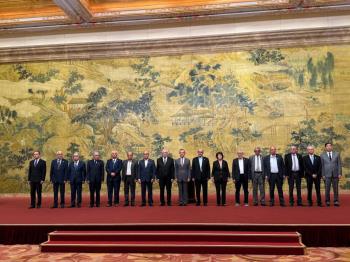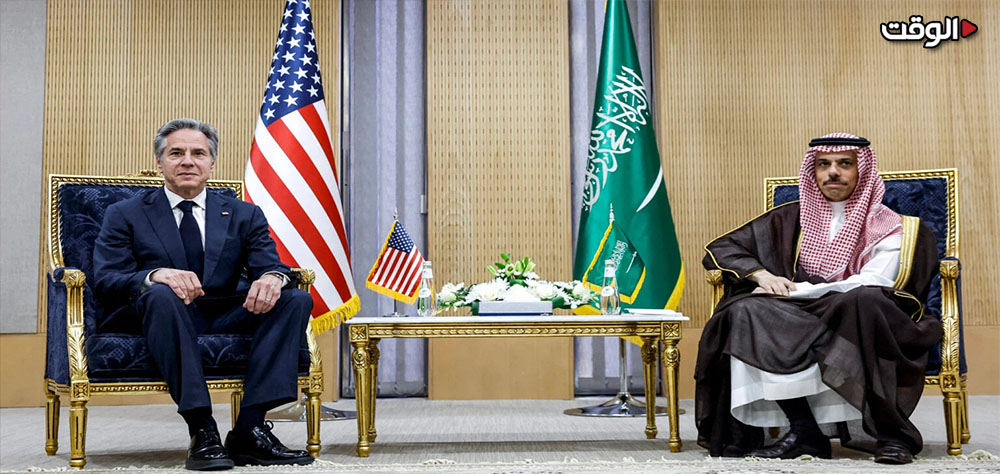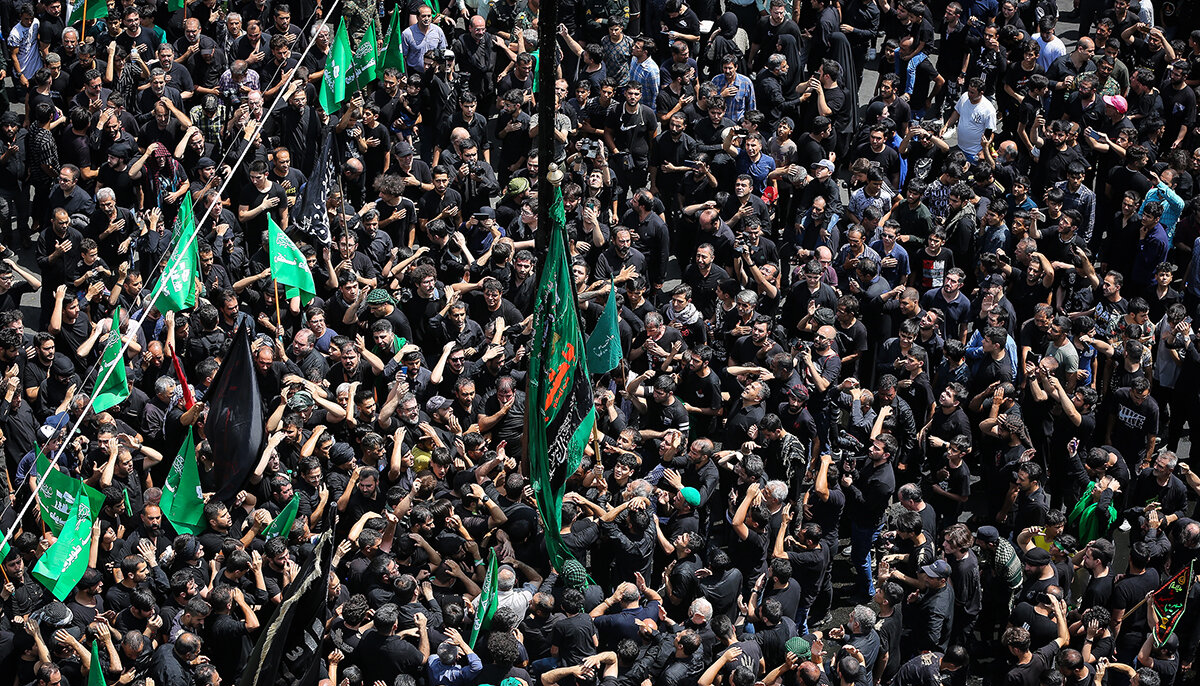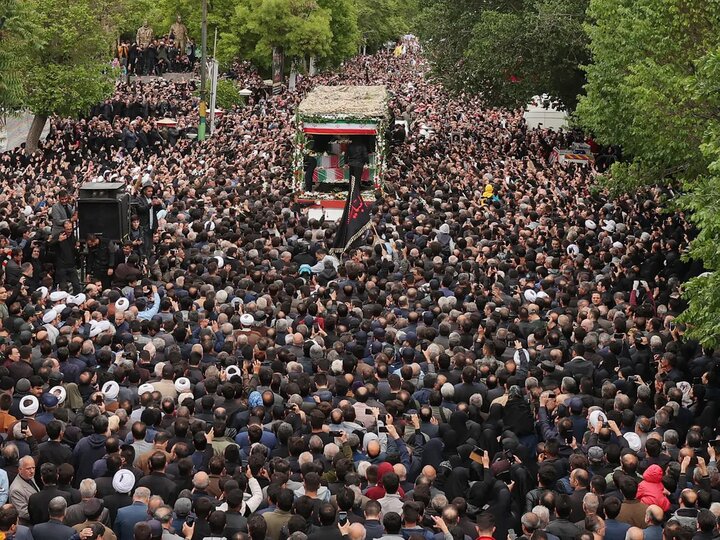Alwaght- On April 29, the US Secretary of State Antony Blinken issued a surprise statement reporting the closeness of Washington and Riyadh to signing a new defense pact. Shortly after, Saudi Foreign Minister Faisal bin Farhan said he expected the bilateral agreement between the two countries countries to be inked "in near future."
These statements triggered speculations by regional media about an imminent pact and its possible terms. However, many analysts argued that it is too soon to talk about imminence of a pact and that a full agreement on a grand deal still has a long way to go.
While it seems obvious that behind-the-scenes talks are underway, two major hurdles remain to be eliminated: First, what Riyadh is expected to demand from Washington, and second, Washington's counter-demand which stipulates that such a pact should lead to Saudi normalization with the Israeli regime.
In this connection, John Alterman, head of the Middle East program at the Center for International and Strategic Studies (CSIS), believes that despite official statements, it is unlikely that a comprehensive agreement between the US and Saudi Arabia will be reached in the coming months.
What Riyadh wants from Washington
The first challenge ahead of the pact is the gap between the expectations of the two countries from the nature and form of the new defense pact. So far, no information have been officially leaked about how this pact would look like. Ali Bakr, professor at Qatar University and non-resident senior member of the Middle East Security Initiative Group of the Atlantic Council, described the potential agreement with Saudi Arabia as "vague and general."
Unofficial reports and media sources and political analysts suggest that Riyadh is seeking to commit Washington to sign a defense agreement, according to which the US will be committed to defend the territorial integrity of Saudi Arabia against threats, similar to the reciprocal commitment contained in Article 5 of the NATO.
Kristian Alexander, a Senior Fellow and the Director of International Security & Terrorism Program at TRENDS Research and Advisory based in the UAE, said that according to such a defense pact, “the US would provide security guarantees to Saudi Arabia, which might include commitments to defend the kingdom in the event of external threats. The agreement could also allow Saudi Arabia access to sophisticated U.S. military technology that was previously restricted, which could significantly enhance the kingdom’s defense capabilities.”
Meanwhile, the challenging issue raised by the observers is that the US does not simply sign official defense pacts with a third country, something the Saudis insist on.
Despite military cooperation and even extensive military support to many countries, the US has defense agreements with a small number. Indeed, the idea of a written defense treaty is not something that Washington usually readily accepts since it means that it could have to get involved in unnecessary wars and American soldiers lose their lives.
He added that “Saudis want as close as they can get to written US agreement to defend the Kingdom under a variety of circumstances,” but with so little detail revealed it is unclear what those circumstances are.
Alexander noted that any defense pact with the Arab kingdom “will very likely also raise concerns among some US lawmakers (US Senate and Congressional Approval), who view the Saudi government as an untrustworthy partner and are critical of its human rights record and involvement in the Yemen conflict.”
And if the Republican-controlled Congress does not approve this official treaty, although the White House can go the executive route, this is not something that can satisfy the Saudis.
Also, there is another unsettled challenge and it is the US push to limit the growing Riyadh ties with Beijing and Moscow.
According to Bloomberg, Saudi Arabia's Crown Prince Mohammed bin Salman may agree to limit China's technological involvement in some of the most sensitive sectors of the Saudi economy in return for American investments in artificial intelligence, quantum computing and building national Saudi civil nuclear program.
To restrict the expanding Chinese presence in the Persian Gulf and distance the regional countries from Chinese Road and Belt Initiative (RBI), the American government since last year has been promoting India-Middle East-Europe transit route, dubbed IMEC, as an alternative. This transit initiative includes a multi-faceted transport corridor connecting India's western coast to the UAE by sea and then a rail route that runs from the Arabian Peninsula to the port of Haifa in occupied Palestinian territories and from there to Europe.
Israeli-Saudi normalization looks far-fetched
The second and the largest obstacle ahead of a comprehensive security pact is Washington's expectation to tie any agreement to the Israeli-Saudi thaw.
The White House National Security Advisor Jake Sullivan last week brazenly said that any agreement with the Saudis should cover normalization with the Israelis and that normalization is an inseparable segment of the proposed pact.
This official statement of a senior American security official was made after some media reports suggested the possibility of a draft plan B, including a bilateral defense agreement that does not depend on the normalization of relations with Tel Aviv.
Washington’s insistence on the Saudi submission to the condition of betting on a losing horse comes as the Saudis at least in their stated stances set a challenging condition and it is end of Gaz war and taking steps toward formation of an independent Palestinian state, something the Israeli cabinet is strongly opposed to. Even the American negative vote to the UN Security Council’s resolution on an independent Palestinian state showed that Washington is toeing the line of Zionist hardliners.
Also, there are two other issues: Israeli government is against any Saudi strategic military supremacy and is fundamentally against the Saudi gain of knowledge for nuclear fuel production. These are two important elements that sway the prospects of defense-security pact with Saudi Arabia.
So, given the two big challenges, the director of London-based MENA Analytica Andereas Kreig, believes that recent political and media uproar was an effort by Biden administration's officials to create noise and paint themselves close to settling Gaza crisis and formation of an independent Palestinian state and to improve their election status.


























